MURFREESBORO, Tenn. — Philip E. Phillips, associate dean of the Middle Tennessee State University Honors College and professor of English, recently served as the keynote speaker at the International Conference on “Humans, Animals, and Natural History: Ecocritical Approaches to World Literature” at Ravenshaw University in Cuttack, Odisha, India.
The three-day event brought together scholars and students worldwide to explore literature’s role in addressing environmental concerns. Phillips was invited by Khagendra Sethi, head of Ravenshaw’s English Department, who was inspired by Phillips’ research on the literary representation of animals in American literature.
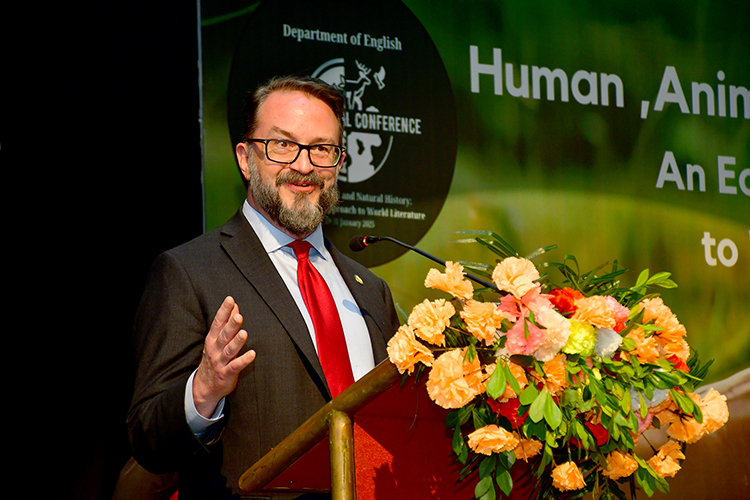
“His scholarship, particularly his work on Edgar Allan Poe and Robert Frost, offered a fresh perspective on literature, ecology, and animal studies,” Sethi noted. Assistant professor Aryaprava Nayak added that Phillips’ expertise in ecopoetics and research on these poets made him an ideal choice to foster discussions on the complex relationships between humans, animals, and the environment.
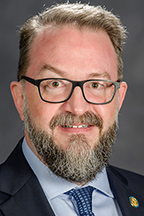
At MTSU, Phillips has led interdisciplinary Honors lecture series on environmental themes, such as “The Environment” in 2011 and “Climate Change” in 2020. “Our MTSU students share this global concern for the natural world,” he stated, highlighting faculty research spanning multiple disciplines.
In his keynote, “Ecopoetics and the Representation of Animals in Robert Frost,” Phillips analyzed Frost’s portrayal of nature and non-human life.
“Frost calls our attention to, but refuses to resolve, the complexities of human and non-human animal behavior,” Phillips explained. His lecture set the stage for a robust conference featuring plenary lectures and concurrent sessions on literature’s role in ecological discussions.
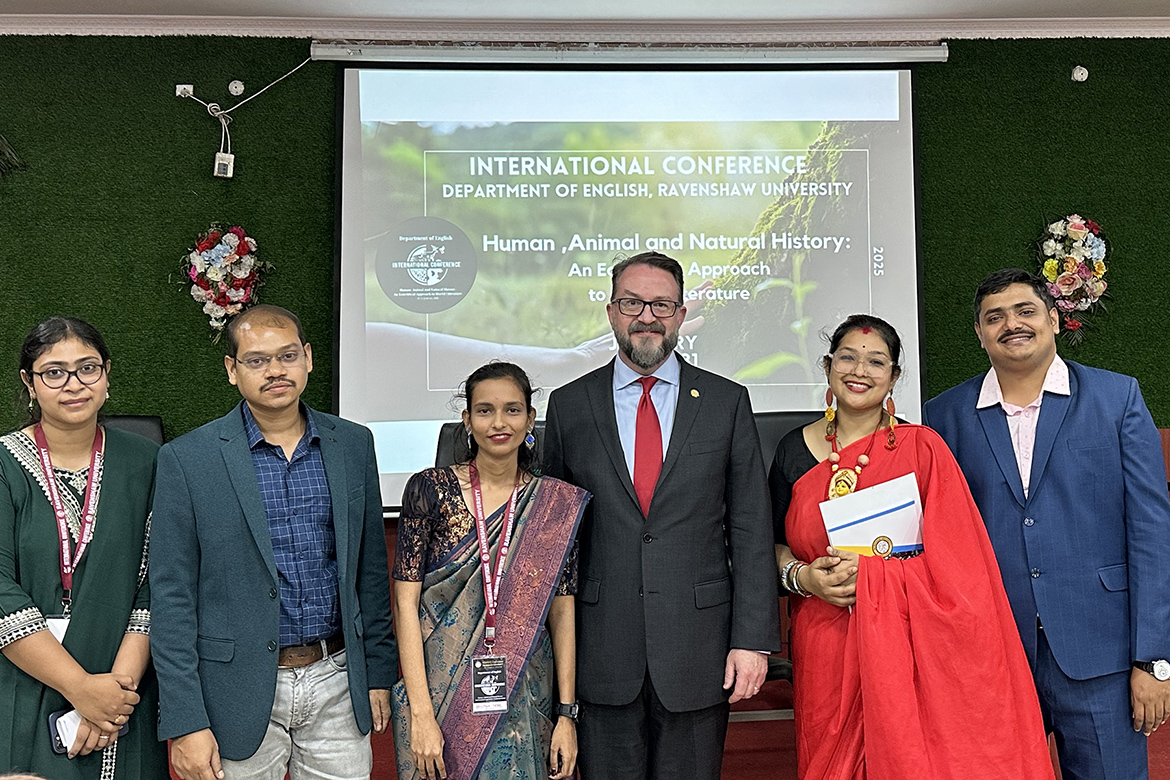
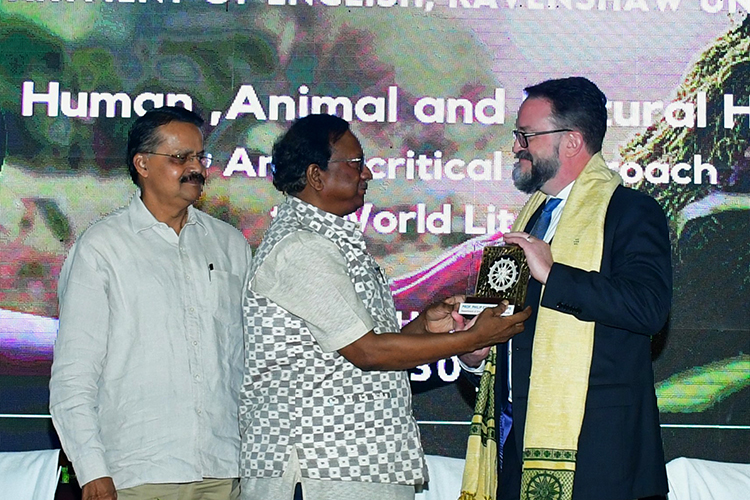
Conference participants examined themes such as the literary representation of animals, human environmental impact, and interconnections between human, animal and environmental histories. Nayak emphasized the relevance of these discussions in India, where biodiversity loss, deforestation, and industrialization are pressing issues.

“Collaborations with international scholars will deepen conversations about ecological responsibility and literature’s role in fostering a sustainable world,” she said.
The conference attracted over 500 English majors, demonstrating a strong interest in ecocriticism. Phillips noted that environmental issues were a central concern among attendees.
“People in India take environmental threats very seriously,” he observed, discussing pollution, overpopulation and industrialization. His analysis of Frost’s work resonated with students and faculty, sparking lively dialogue on the role of literature in ecological discourse.
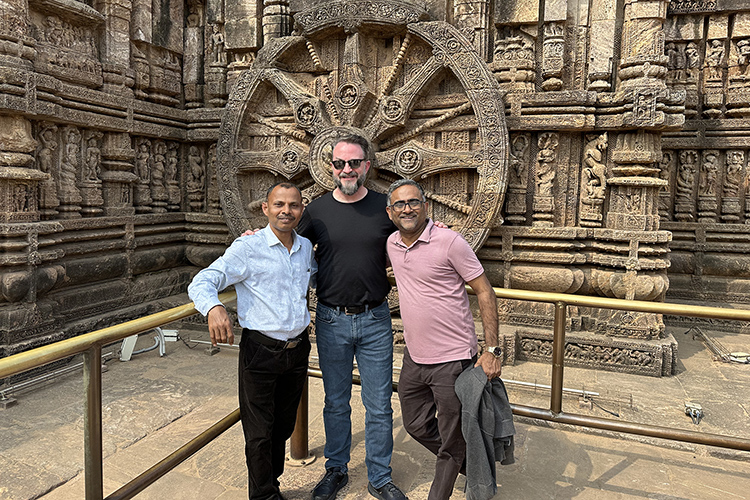
Beyond academic discussions, the event featured cultural performances and received significant institutional support. Nayak highlighted the enthusiastic engagement following Phillips’ keynote: “Delegates and students eagerly engaged with his insights, leading to rich discussions on animal representation in literature.”
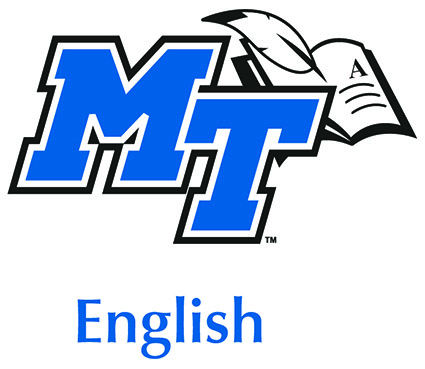
Phillips’ participation at the conference strengthened MTSU’s global academic connections, with professor Sambit Panigrahi, the conference convenor, noting, “His presence enriched our discussions, reinforcing ecocriticism’s relevance in world literature.”
Phillips’ recent publications, including contributions to “Animals in the American Classics” and the upcoming “Animals in Classic American Poetry,” further underscore his expertise.
Following the conference, Phillips was invited to edit a collection of essays based on the event.
“I plan to continue working in this area and welcome future collaborations with Ravenshaw and other universities in India,” he said. Nayak expressed interest in joint research projects, co-hosted conferences, and faculty and student exchanges, emphasizing the potential for interdisciplinary academic partnerships.
— Robin E. Lee (Robin.E.Lee@mtsu.edu)
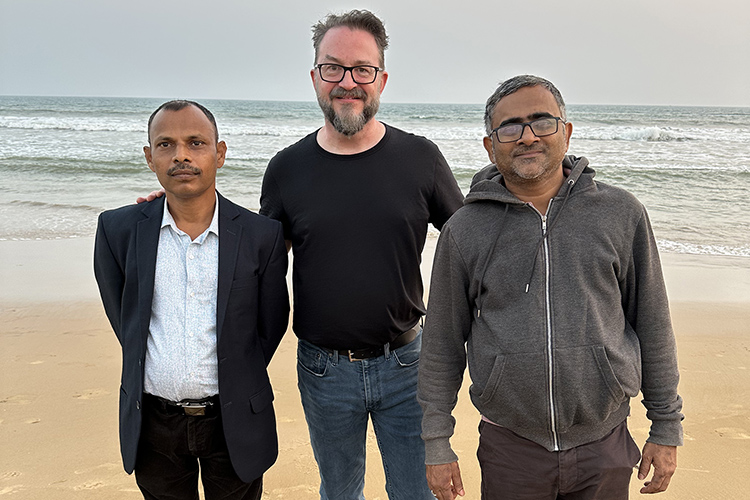

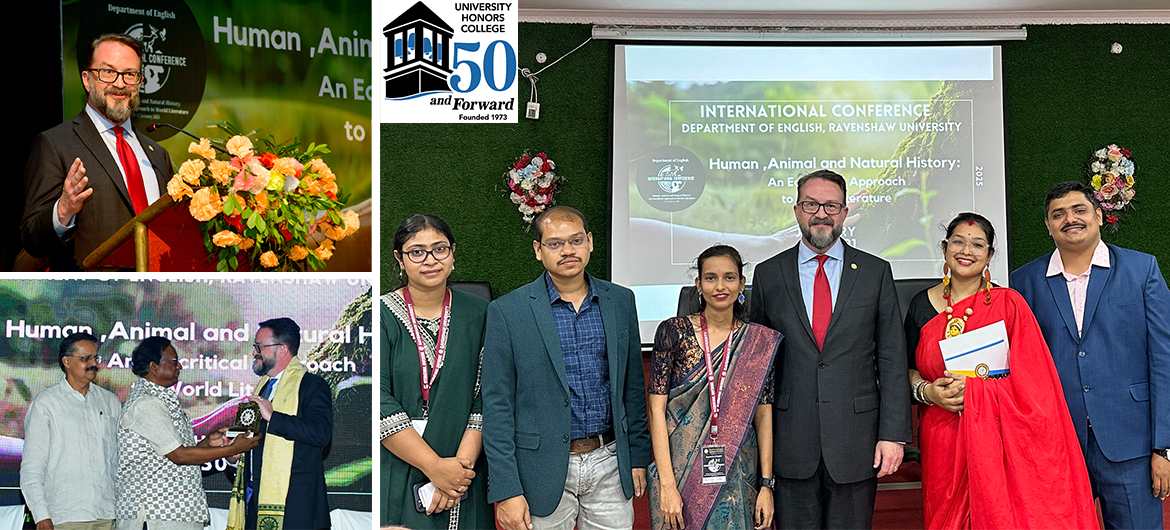
COMMENTS ARE OFF THIS POST